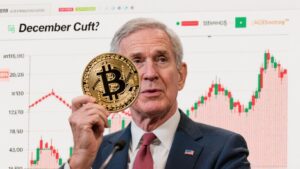Crypto Rally Fuels $1B Inflows Into Ethena, Reviving Double-Digit Yields
Ethena’s recent revival is driven by a rise in perpetual funding rates, setting the stage for continued growth as the crypto market heats up.
Since Donald Trump’s election victory, the cryptocurrency market has surged, bringing renewed attention to Ethena’s USDe token. Over the past month, the token attracted approximately $1 billion in new investments, pushing its market cap to $3.44 billion—just shy of its all-time high of $3.6 billion reached in July, according to data from DefiLlama.
Earlier this year, Ethena faced challenges when the crypto market cooled after peaking in March. USDe, which is pegged to $1, is backed by bitcoin (BTC) and ether (ETH), as well as an equal value in short perpetual futures contracts across multiple exchanges. When the perpetual funding rates were positive, the protocol’s strategy generated revenue and passed on some of those earnings to investors as yield.
However, during August and September, as the funding rates turned negative, the protocol struggled, and yields fell below the risk-free U.S. dollar rate. This led to a $1.2 billion withdrawal from the protocol between July and October.
Now, with Bitcoin reaching new all-time highs, Ethena has experienced a resurgence. The platform is currently offering a 29% annualized yield to stakers, with a significant boost from rising Bitcoin funding rates.
Looking ahead, Ethena is primed for further growth. Aave, one of the largest decentralized lending platforms, has integrated USDe as collateral, allowing users to borrow against the token while still earning yield. Ethena’s co-founder, Guy Young, anticipates that the Aave integration will bring billions of dollars worth of USDe into circulation over the next month, and two additional centralized exchanges (CEXs) are set to list the token soon.
In addition, Ethena plans to distribute protocol revenues to ENA governance token holders after the project’s risk committee approved a proposal. The initiative, put forward by Wintermute on November 6, is seen as part of a broader strategy to take advantage of potential regulatory changes under a Trump presidency, with expectations of more favorable policies for decentralized finance (DeFi).
Share this content:













